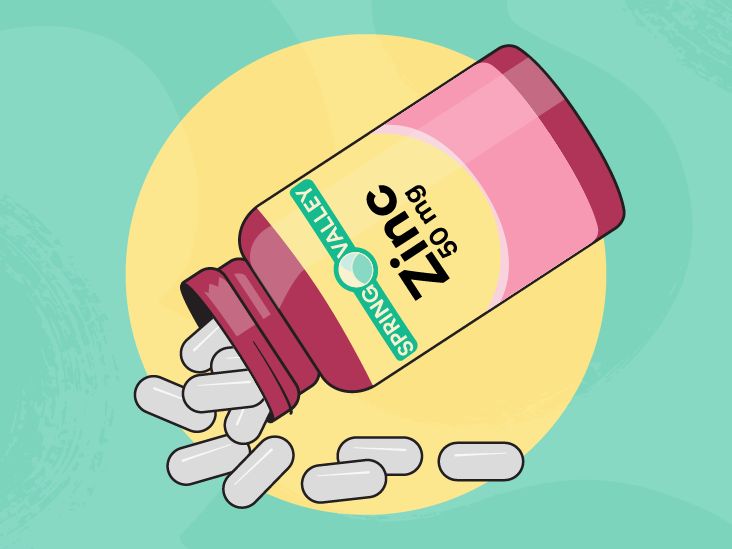Improve Your Digestive Health: 7 Simple Ways

Your gastrointestinal (GI) tract and the billions of microorganisms that call it home are intricately connected to your brain, your immune system, and other key body systems.
When it comes to your health, trust your gut.
Tummy troubles — like bellyaches, constipation, bloating, and diarrhea — might mean something’s up with your health.
On the flip side, a happy, diverse microbiome can have a positive impact on your overall well-being.
Keeping your gut healthy is a powerful way to support whole-body health. We’ve partnered with Walmart to bring you tips on how to keep tabs on your gut health.
1. Keep tabs on your health
If your gut is feeling off, it may be a sign something bigger is going on. Some non-digestive health conditions might even make digestive symptoms worse.
Having diabetes-related high blood sugar can cause a condition called gastroparesis, where GI tract activity slows and food can sit in your stomach a lot longer, causing nausea and vomiting.
Telltale symptoms of gastroparesis include bloating, pain, and feeling super full even after eating a little bit.
These symptoms can also indicate other conditions, though, so it’s a good idea to speak with a healthcare professional to figure out what’s going on.
Blood glucose screenings — like the A1C screenings at Walmart — can help you get an idea of your blood sugar levels and diabetes risk. A1C measures blood sugar over the past 3 months. The higher your A1C number, the higher your blood glucose levels.
It’s important to note that genetics can affect your results, so A1C isn’t accurate for everyone. For example, people with African or Southeast Asian ancestry may have blood protein variants that affect the accuracy of A1C testing.
2. Find ways to chillax
Finding ways to zap stress can help prevent an upset stomach.
Your gut bacteria and blood pressure may be connected too. Research has shown that the presence of certain gut bacteria can increase or decrease blood pressure in mice.
And it may be a two-way street — evidence suggests that some blood pressure-lowering medications may improve certain gut conditions.
If you’re concerned about blood pressure, head to your local Walmart for a quick blood pressure check.
3. Drink enough H2O
Plenty of water a day keeps the constipation away.
Drinking enough water keeps food moving through your GI tract and encourages the growth of friendly bacteria that help stave off gut infections and support your health.
There’s actually no one guideline on how much water you should drink per day, but your pee color is a great indicator to keep an eye on.
Try to keep it light yellow — if it’s darker, that’s your cue to take a sip or two.
You should be drinking more water than you usually would if you’re pregnant, breastfeeding, exercising, or sweating more than usual.
4. Try probiotics
Eating certain strains of bacteria and a few types of yeast can help you maintain a healthy gut and may help ease digestive symptoms in some people, particularly in cases of diarrhea and in people with IBS.
Probiotics may even help improve your cholesterol levels, some research has shown.
The secret is eating certain foods that naturally contain live cultures of these healthy probiotics, including:
- some cheeses
- naturally fermented pickles
- kimchi
- sauerkraut
- miso
- raw unfiltered apple cider vinegar
You can also get them by taking probiotic supplements.
Spring Valley Probiotic Multi-Enzyme Digestive Formula Tablets from Walmart are formulated to promote healthy digestion with a combination of digestive enzymes and the beneficial bacteria Lactobacillus acidophilus La-14.
5. Boost immune health
Your immune system cells and gut microbes are besties.
Bacteria and other organisms that live in your gut play a crucial role in “training” your immune system, helping your immune cells learn to recognize helpful vs. harmful organisms.
The influence also goes in the other direction: Your body’s immune cells influence your gut microbiota.
So, supporting your immune system can also support your gut health. You can start by making healthy lifestyle choices.
The Centers for Disease Control and Prevention (CDC) recommends supporting your immune system by getting plenty of exercise, eating a balanced diet, avoiding smoking and alcohol, and getting enough sleep.
Taking supplements may help too. Spring Valley Zinc Immune Support Dietary Supplement Caplets from Walmart are formulated to promote immune health and energy metabolism.
6. Get moving
Mild to moderate-intensity exercise makes food travel through your gut faster, reducing constipation. (Yay!)
Research has also shown that exercising supercharges your gut bacteria regardless of your diet. It appears to improve microbe diversity and boost levels of the anti-inflammatory compound butyrate.
Exercising for longer durations or at a higher intensity may be especially effective.
Side note: Some endurance exercise can lead to diarrhea — including the infamous “runner’s diarrhea.”
7. Add fiber to your diet
The benefits of upping your fiber intake go way beyond healthy poops.
Eating lots of fiber is the bedrock of great gut health and has far-reaching health benefits. It helps you manage your blood sugar levels and can even improve your cholesterol levels.
Walmart offers screenings for blood glucose and cholesterol levels that can help you gauge where you’re at.
Another thing you might want to consider: If you’re experiencing bloating, cramping, or diarrhea, ask a healthcare professional whether FODMAPs (fermentable oligosaccharides, disaccharides, monosaccharides, and polyols) might be the culprit.
These types of fiber are almost as hard to digest as their name. They’re also likely to make you gassy, especially if you have irritable bowel syndrome (IBS) or celiac disease.
FODMAPs show up in many foods, such as apples, garlic, and lentils.
High fiber foods that aren’t part of this family include quinoa, oats, oranges, strawberries, and tomatoes.
If high FODMAP foods don’t irritate you, go ahead and eat ’em. They’re good for you! But if you think they might be contributing to your GI distress, talk with a doctor or dietitian.
Bottom line
Take care of your tummy, and your tummy will take care of you.
Visiting Walmart for health screenings can help you keep an eye on things, too, including your blood glucose and cholesterol levels.








